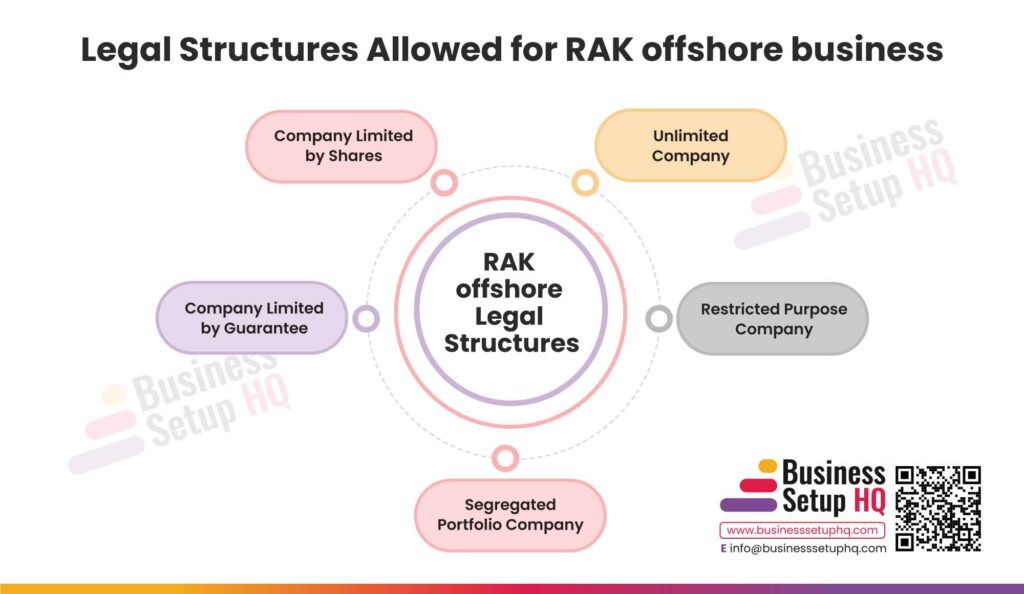Offshore Company Formation Packages for Overseas Clients
Offshore Company Formation Packages for Overseas Clients
Blog Article
Browsing the World of International Service: Insights on Offshore Company Formation
Offshore Company Formation offers a critical method for international service operations. It uses noteworthy benefits, such as tax obligation optimization and boosted privacy. Nevertheless, the process is not without its obstacles. Recognizing the complexities of governing demands and numerous jurisdictions is important. As organizations think about these alternatives, the steps included can significantly influence their long-term success. What are the crucial factors that can result in effective overseas management?
Recognizing Offshore Business: Definition and Objective
Offshore companies have actually ended up being a focal point in global company discussions due to their unique legal and monetary frameworks. These entities are established in jurisdictions outside of the proprietor's nation of residence, commonly with favorable regulative settings. Typically, offshore companies serve different functions, such as possession defense, tax obligation optimization, and boosted privacy. They can operate in multiple sectors including money, profession, and technology, providing versatility for international operations.The defining feature of an overseas Company is its capacity to conduct service internationally while taking advantage of minimized tax responsibilities and governing worries. This framework interest business owners and investors seeking to expand their profiles and take care of dangers successfully. Furthermore, numerous offshore territories use rewards to attract foreign financial investment, bring about a rise in the Formation of these companies. Comprehending the meaning and function of offshore firms is essential for maneuvering through the complexities of global business and capital circulation.
Secret Advantages of Offshore Company Formation
The Formation of an overseas Company offers numerous compelling benefits that draw in entrepreneurs and capitalists alike. Among the primary advantages is tax optimization; several territories provide favorable tax obligation rates or exemptions, allowing organizations to make best use of earnings. Furthermore, overseas firms typically enjoy higher confidentiality, as lots of jurisdictions have rigid privacy legislations protecting the identifications of Company proprietors and shareholders.Another substantial benefit is possession security. Offshore entities can safeguard possessions from political instability and economic downturns in the owner's home nation. These business can assist in international trade, supplying easy access to international markets and simplifying cross-border transactions.The adaptability in business framework likewise appeals to business proprietors, as overseas companies can be tailored to satisfy specific functional needs. In general, the calculated Formation of an offshore Company can bring about improved financial security, operational efficiency, and a robust international presence.

Typical Obstacles in Establishing Offshore Entities
Establishing offshore entities provides several challenges that companies must navigate. Key concerns include regulatory compliance, which can differ considerably across jurisdictions, and the effect of social distinctions on operations. Furthermore, organizations must consider the dangers and costs connected with preserving an offshore existence, which can impact general practicality.
Regulative Compliance Issues
Navigating regulative conformity concerns presents significant difficulties for companies when they seek to establish offshore entities. Each jurisdiction has its very own collection of regulations and regulations, which can differ extensively and may be difficult to navigate. Companies commonly deal with challenges pertaining to tax obligation compliance, anti-money laundering regulations, and reporting needs. Furthermore, adjustments in international tax regulations can create uncertainty, making it essential for organizations to stay updated on compliance responsibilities. Failure to comply with these policies can lead to extreme charges, including fines and reputational damage. Consequently, engaging and recognizing the legal structure with local professionals is important for effective overseas procedures, making certain that organizations can operate within the boundaries of the law while enhancing their global approach.
Cultural Distinctions Impact

Cost Factors To Consider and Threats
Steering through the financial landscape of overseas entity Formation presents numerous cost considerations and fundamental threats. Initial arrangement expenses typically include lawful fees, registration expenditures, and compliance charges, which can gather considerably. Additionally, ongoing maintenance expenditures such as yearly fees and accounting services should be factored in. Varying regulatory settings in different territories posture dangers, possibly leading to legal problems or unexpected costs. Services may likewise experience obstacles associated with taxation, financial, and reputational concerns, which can affect success and functional efficiency. Potential business owners should carry out comprehensive due persistance and financial forecasting to minimize these risks and assure sustainable development. Recognizing these cost considerations is vital for effective overseas business ventures.
Steps to Establish Up an Offshore Company
Establishing an offshore Company includes numerous crucial steps that call for mindful consideration. Key aspects consist of ensuring and selecting the suitable jurisdiction compliance with regional guidelines, along with collecting necessary documentation. Understanding these elements is vital for an effective offshore company configuration.
Selecting the Right Territory
Selecting the best jurisdiction is crucial for any person aiming to establish up an offshore Company, as it can greatly influence business's legal obligations, tax obligation obligations, and operational ease. Numerous aspects ought to be taken into consideration, consisting of the political stability, governing atmosphere, and tax motivations used by potential territories. Popular options frequently consist of countries with favorable tax obligation routines, such as the British Virgin Islands or Cayman Islands, due to their reduced or no tax prices. Additionally, the convenience of doing service and the credibility of the territory can influence investor self-confidence and market access. Eventually, a well-informed decision based upon extensive research will assure the offshore Company is positioned for lasting success and compliance with global requirements.
Required Paperwork and Conformity
When establishing an overseas Company, recognizing the required documents and compliance demands is important to guarantee a smooth process. Trick files normally consist of a certification of unification, a memorandum and articles of association, and evidence of identification for supervisors and investors. Some territories may call for additional information, such as service strategies or bank referrals. Conformity with local laws is crucial, which often includes selecting a signed up representative and maintaining a registered office. Routine coverage and adherence to tax obligation commitments have to also be thought about. Failing to follow these requirements can cause penalties and even dissolution of the Company. Extensive prep work and appointment with lawful experts can help navigate these complexities successfully.
Choosing the Right Jurisdiction for Your Offshore Company
Just how can one figure out one of the most ideal territory for an overseas Company? Selecting the best jurisdiction requires careful consideration of several variables. Initially, the legal and tax obligation environment plays an essential duty; territories with beneficial tax obligation regimes might improve business productivity. In addition, the political security and economic climate of a location can impact lasting service viability.Another essential aspect is the schedule of monetary services and financial infrastructure, which get more info facilitate smooth procedures. Prospective entrepreneur ought to additionally think about the ease of operating, including the speed of enrollment and the clearness of regulations.Furthermore, language obstacles and cultural differences can impact operations; consequently, lining up with a territory that lines up with business objectives and personal comfort is important. Inevitably, complete research and professional suggestions can assist entrepreneurs in making an educated choice that aligns with their critical goals.
Compliance and Regulatory Considerations

Ideal Practices for Taking Care Of an Offshore Service
Managing an offshore service calls for tactical preparation and thorough execution to enhance efficiency and minimize risks. Developing a robust compliance framework is necessary to browse varying policies across jurisdictions. Routine audits and threat analyses aid identify potential vulnerabilities.Moreover, leveraging regional expertise through partnerships with regional experts can boost functional efficiency and cultural understanding. Using innovation, such as cloud-based monitoring systems, streamlines communication and information administration, enabling better decision-making. Furthermore, preserving transparent financial records and guaranteeing timely tax filings are important to copyright the Company's integrity. Buying team training and growth cultivates a skilled labor force, advertising advancement and adaptability.Finally, developing clear performance metrics and crucial performance indicators (KPIs) helps assess business progression and notify calculated modifications. By adhering to these ideal techniques, business can effectively manage their overseas operations, guaranteeing long-term success and sustainability in an affordable international market.
Frequently Asked Inquiries
What Is the Price of Developing an Offshore Company?
The cost of developing an offshore Company differs commonly depending on territory, legal needs, and services required. Typically, expenditures can range from a couple of hundred to a number of thousand bucks, including enrollment, compliance, and yearly charges.
How Lengthy Does It Take to Develop an Offshore Entity?
The moment required to develop an offshore entity varies substantially, generally varying from a couple of days to several weeks (offshore company formation). Variables influencing this period include territory, called for documentation, and the effectiveness of the company involved
Can People Form Offshore Companies Without a Business Partner?
People can undoubtedly form offshore firms without a service partner. Lots of jurisdictions permit single-member entities, empowering entrepreneurs to establish and handle their services independently, while still gaining from prospective tax advantages and lawful protections.
Exist Any Tax Advantages for Foreign Investors?

What Sort Of Businesses Generally Utilize Offshore Companies?
Offshore firms are often made use of by different industries, consisting of innovation, e-commerce, and money. These entities often offer functions such as possession defense, tax optimization, and personal privacy, appealing to both private entrepreneurs and multinational firms. Offshore firms have come to be a focal point in global business conversations due to their unique legal and economic structures. They can run in numerous sectors including money, profession, and technology, offering versatility for international operations.The specifying characteristic of an offshore Company is its capability to perform business worldwide while benefiting from decreased tax obligations and regulative problems. In addition, overseas firms often delight in higher privacy, as lots of territories have rigid personal privacy regulations shielding the identifications of Company proprietors and shareholders.Another substantial benefit is property defense. These firms can promote global profession, giving simple accessibility to worldwide markets and simplifying cross-border transactions.The flexibility in corporate structure also allures to organization proprietors, as overseas business can be tailored to satisfy specific functional requirements. Selecting the right territory is crucial for anyone looking to establish up an overseas Company, as it can substantially influence the service's legal obligations, tax responsibilities, and operational ease.
Report this page